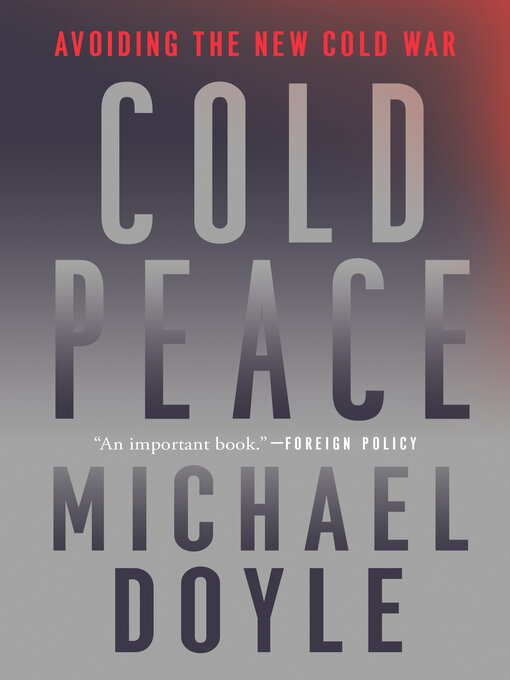An urgent examination of the world barreling toward a new Cold War.
By 1990, the first Cold War was ending. The Berlin Wall had fallen and the Warsaw Pact was crumbling; following Russia's lead, cries for democracy were being embraced by a young Chinese populace. The post–Cold War years were a time of immense hope and possibility. They heralded an opportunity for creative cooperation among nations, an end to ideological strife, perhaps even the beginning of a stable international order of liberal peace.
But the days of optimism are over.
As renowned international relations expert Michael Doyle makes hauntingly clear, we now face the devastating specter of a new Cold War, this time orbiting the trilateral axes of Russia, the United States, and China, and exacerbated by new weapons of cyber warfare and more insidious forms of propaganda.
Such a conflict at this phase in our global history would have catastrophic repercussions, Doyle argues, stymieing global collaboration efforts that are key to reversing climate change, preventing the next pandemic, and securing nuclear nonproliferation. The recent, devastating invasion of Ukraine is both an example and an augur of the costs that lay in wait.
However, there is hope.
Putin is not Stalin, Xi is not Mao, and no autocrat is a modern Hitler. There is also an unprecedented level of shared global interest in prosperity and protecting the planet from environmental disaster.
While it is unlikely that the United States, Russia, and China will ever establish a "warm peace," there are significant, reasonable compromises between nations that can lead to a détente. While the future remains very much in doubt, the elegant set of accords and non-subversion pacts Doyle proposes in this book may very well save the world.


